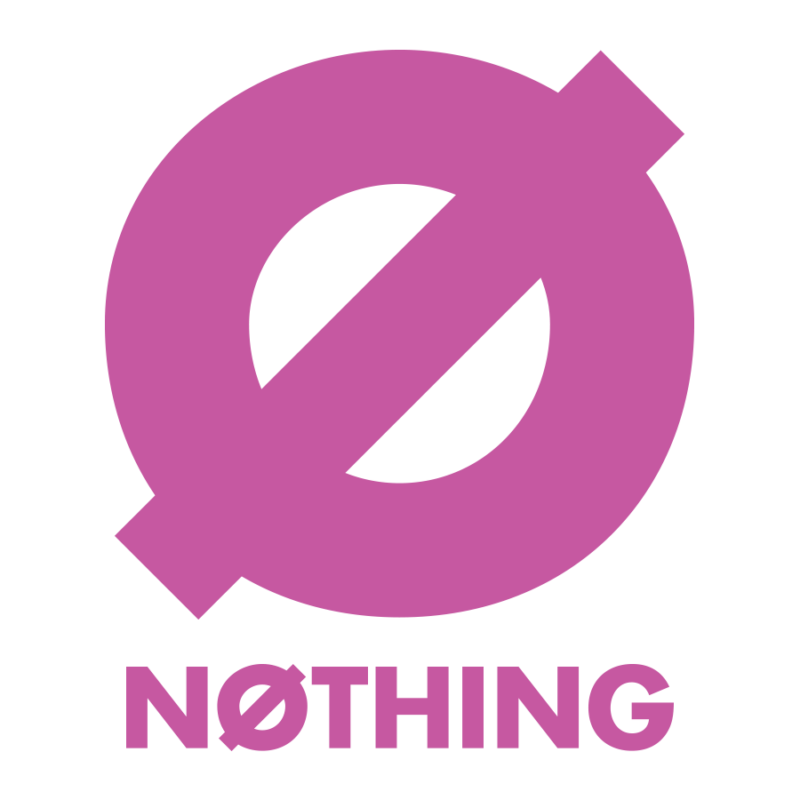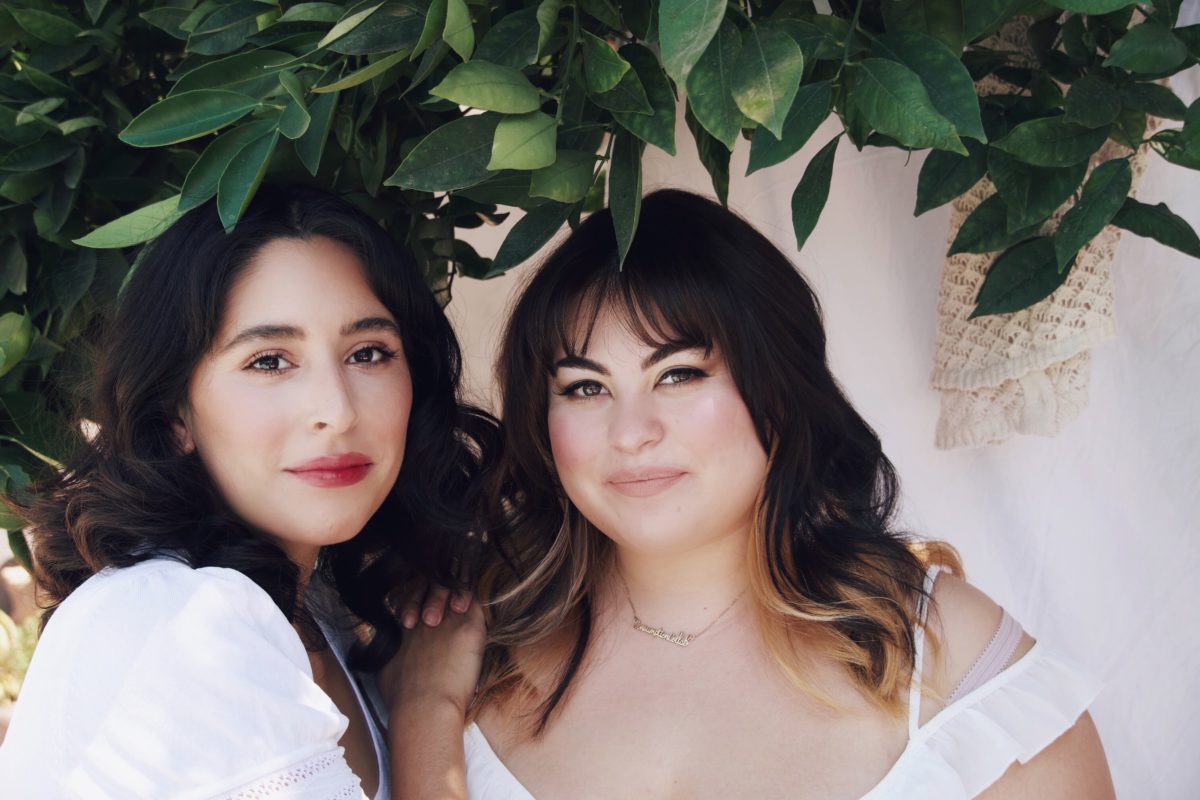When you’re looking in your closet, do you ever just think about where your clothes come from? You think about different ways to style your high-waisted mom jeans or your crop tops, but do you ever wonder where and how these garments are made? Consumption Collab, a fashion styling dynamic duo, created their brand in order to save a clothing’s longevity and recycle them into something better and more magical. Consumption Collab is founded by Veronica Ealba and Emanda Ceccia, who believes that fashion is much more than expressing your personality, but fashion is also a way to learn and save the earth.
What is Consumption Collab and how did you all start?
Consumption Collab has evolved into this platform for creatives and it all connects us by swapping clothes and also letting people who don’t normally have a voice or a platform, to have the ability to showcase whatever they are doing, whether that is to make music or vendor their creations from handmade makeup to ceramics to art, etc.
Anything that artists can curate; they can bring to a swap and then there, we like to say that they’re trading more than clothes, but they are also trading their passions and inspirations. You come to trade clothes and end up meeting people and learning about what they do. It is a way for people in our age group, our circle, and others who are not in the circle to come in and connect with others.
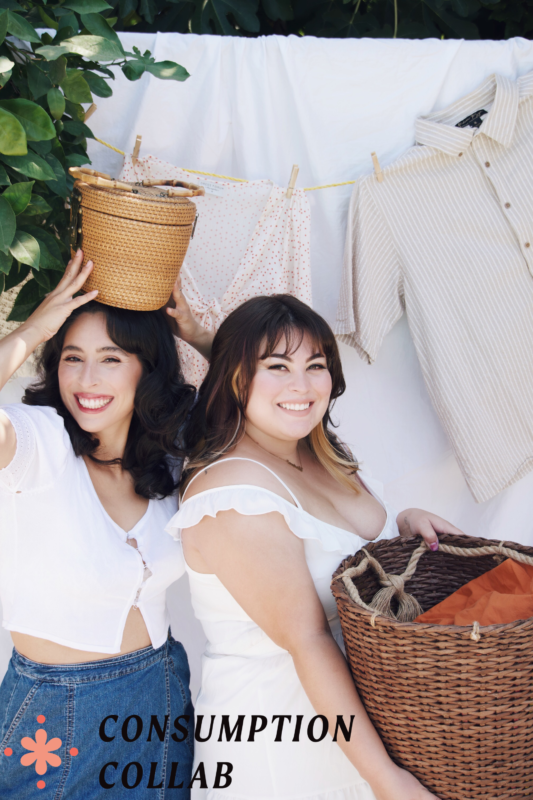
What makes Consumption Collab different and unique?
I feel like I have not seen anyone doing clothing swaps in a pubic manner, it was always just friends inviting people over to swap clothes, and that’s actually how we started because Veronica used to host them at her house all the time. We would have swap parties where girlfriends come together and just trade their stuff that they plan on getting rid of or donating. When we started doing clothing swaps on a public level and get the community involved, that’s what made it more unique.
So when it comes to fashion and styling, who are your inspirations?
Veronica: As an aesthetic, I love Lisa Says Gah! I love Long Beach and their aesthetic that is happening right now. I have always loved vintage and 60’s inspired.
Emanda: I am a big history buff, so I love looking back in time and I think that has come out in my fashion sense. I feel like right now I am at a bohemian style; bell sleeves have my heart. But there are times too where I was obsessed with 50’s-60’s style. The times in fashion were phenomenal back then, even though it was not the times you would want to go back to and live in, but I think it would be cool to have those styles come back now where we have more change. We can still admire those styles today.
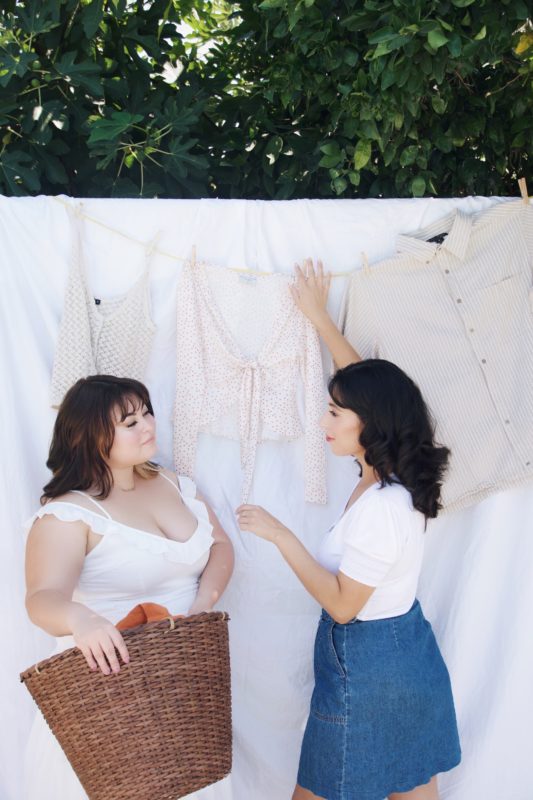
What is your future goal for Consumption Collab?
I think one day we would actually want a brick and mortar where people can come and swap. It would be a space where we can hold more clothes permanently and experience our service. There are places out there where people can rent the runway, but we want something more accessible in a more knowledgeable sense because we never want to be the type of vintage seller who sells a vintage tee for $80 that you know they found for $5 at Goodwill. That is how some people make money and that is the story behind Nasty Gal and a lot of people followed that train, but we are here to make it different and affordable because our whole aspect is trying to find fashion and be sustainable within it, so when you start overcharging for it, the ethics are lost behind it. For some people, thrifting is not an ethical choice, it is their life and it is the only way they can find clothes. It is creating a gap where other people who can not afford new things are not able to dress as trendy because the people who are reselling it are giving it away at a higher price than how much they purchased it. Our whole goal for Consumption Collab is to make it affordable to people can actually wear the cool things.
We want to make a space where people can come on their time because right now, we are more pop-up based. We would love to host events and vendors that could get to stay with us for a longer period of time, so we can showcase their work. If we ever did have the brick and mortar, we want other artists to share their work at an actual location, also without having them to pay so much for rent. We want these other artists to earn some money for the creations they are sharing in our location.
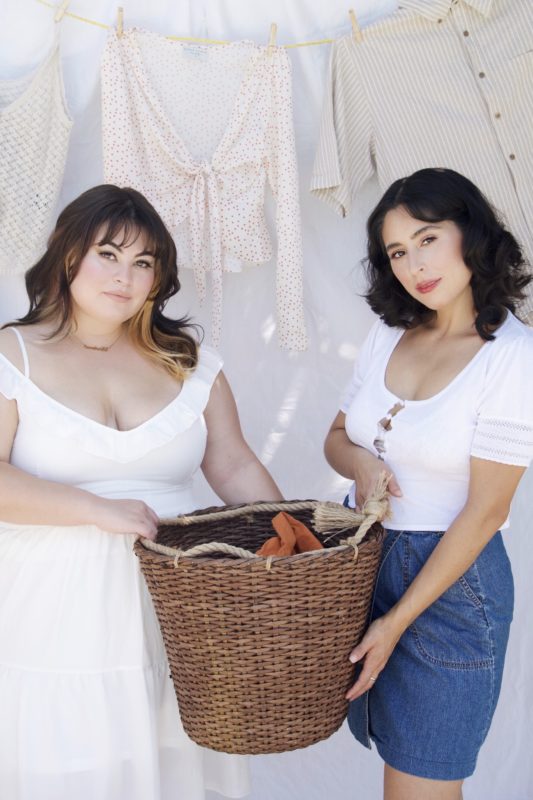
In the far future,we would love to eventually evolve and get investors involved. Even though it does get tricky with opinions and creative differences, but we are about collaborating and bringing the community together and once we get more people involved; your influence gets larger and you get to impact lives and that is the most rewarding prize out of all of this.
In addition, we are trying to still find an idea of where we can sell things. Right now, we are focusing on our mail swaps since we can not do in-person swaps due to COVID. We are trying to push this platform we made online, it is a Google sheet that has people’s names and information to get a hold of them and how we can swap. We encourage people to create a highlight on their story to post clothes that they are willing to swap, so they can reach out to each other and connect. The purpose of that is we don’t want people to be posting their clothes and others reach out to them trying to charge them for it. It is supposed to be trading and free.
What are your thoughts on fast fashion and why should people avoid it?
We are against fast fashion environmentally, economically, and ethically because it is not a sustainable machine. Fast fashion is the second-largest polluter after oil, you would not think that clothes could produce so much harm. Our intern, Demi, she was doing a whole project on the ethics behind fast fashion and that was something I never really took into looking at; but when you think about it, if we are not helping people working for those corrupt corporations, then we can’t help the earth until we are helping the ones that live within it. A lot of people who work for fast fashion factories are paid in cents per garment and are never able to make it out of poverty because they are being paid so little and also are working in horrible, hostile conditions.
It also pushes the idea that what you have is never good enough and that using and fixing what you have until it can’t be worn anymore. When we get things in our swap that need care, we put that work in so the item could live longer. Not everyone has access to those skills. Veronica has a good eye in seeing new possible ways to wear a garment, she has a sewing machine so she can fix pieces that you usually just throw in the trash. It is all about lengthening a garment’s life.
Personally, I know there are a lot of sustainable brands, but the issue is that they are pricier. With these new sustainable brands, it makes sense that the clothes that they are selling are more on the expensive side because we should be paying people for the work that they are doing. However, our wages need to catch up to that. I feel like in our age group, it is more difficult to purchase clothes that are pricier because we are only paid in minimum wage, we have to pay for school tuition, and we are also living in California; these are the main reasons why people turn to fast fashion. But I would say that anything on Instagram or social media platform that you are following, unfollow the accounts that make you impulse-buy.
Name some ways your brand has helped the community.
We have interns and we are always open in taking other interns, so please email us at ConsumptionCollab@gmail.com or dm us! It is easy work — you teach us and we teach you! Being able to give someone an opportunity and have them add something on their resume is something we love to do!
I think musicians appreciate the opportunity to perform at bigger events like our event that occurred last September called Golden Hour which was a great turnout. For the music and artists community, we are inclined to have people come in, where we are supporting the same morals.
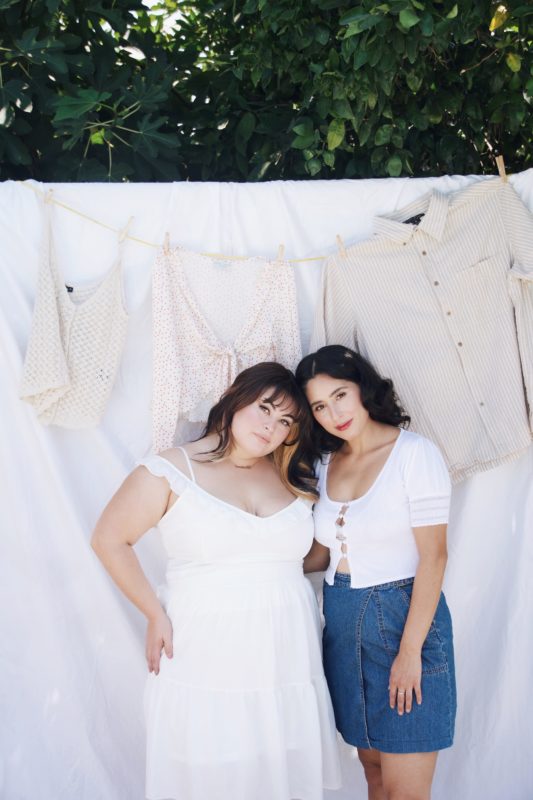
What are some of your proudest or most notable achievements?
One of the highlights we look back on is definitely Golden Hour, we had a row of vendors, eight bands and it was an all-day event. This event was triple on what we usually charge, so it was a really big risk and we did not know what the outcome would be. We did this so we could be able to pay the bands even more because we feel like bands get followers and listeners, but money talks.
Do you have any advice for others who want to start a fashion business?
Do not start a fashion business alone. The more people you get involved the easier it is going to be to climb that ladder together. Also, do not view everybody as competition, we are all about collaborating.
If you are starting a fashion brand, try to look into what your practices are, have the answers to when someone asks “who made my clothes?” or “where are you getting this?” Have those answers. Not that we make our own clothes, a lot of our clothes that we swap are from fast fashion or vintage pieces. I know I have those questions when I am looking into new clothing lines that I saw pop-up. I always wonder if it is ethically made because I want to support their small business.
What are some words of advice or words of wisdom that you have always followed through to keep your business upheld?
Emanda: Work with someone you know that will better you.
Veronica: Reach out to people who you think are too good for you, they may just say yes.

